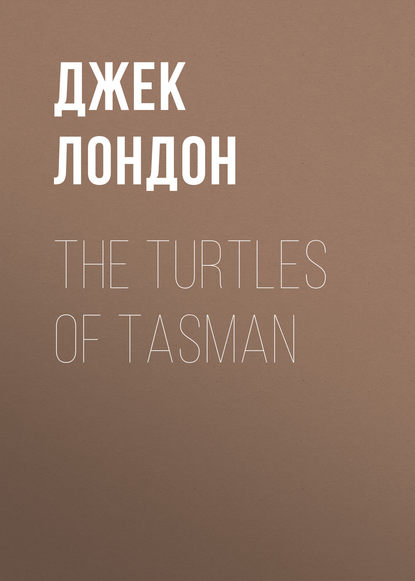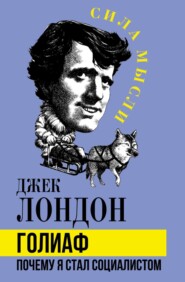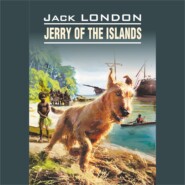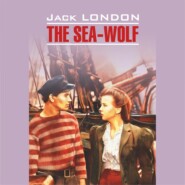По всем вопросам обращайтесь на: info@litportal.ru
(©) 2003-2025.
✖
The Turtles of Tasman
Настройки чтения
Размер шрифта
Высота строк
Поля
Oan:
But I love not the liver, save to eat of it.
Uk:
Yet the song of it is good. When the moon is full we shall sing it about the Stone. We shall beat upon our breasts and sing, "O liver! O red liver!" And all the women in the caves shall be affrightened.
Oan:
I will not have that song of the liver! It shall be Ok's song; the tribe must say, "Ok hath made the song!"
Ok:
Ay! I shall be a great singer; I shall sing of a wolf's heart, and say, "Behold, it is red!"
Uk:
Thou art a fool, and shalt sing only, "Hai, hai!" as thy father before thee. But Oan shall make me a song of my club, for the women listen to his songs.
Oan:
I will make thee no songs, neither of thy club, nor thy cave, nor thy doe's-liver. Yea! though thou give me no more flesh, yet will I live alone in the forest, and eat the seed of grasses, and likewise rabbits, that are easily snared. And I will sleep in a tree-top, and I will sing nightly:
The bright day is gone.
The night maketh me sad, sad, sad,
sad, sad, sad —
Uk:
Ok and Un, arise and slay!
(Ok and Un rush upon Oan, who stoops and picks up two casting-stones, with one of which he strikes Ok between the eyes, and with the other mashes the hand of Un, so that he drops his club. Uk arises.)
Uk:
Behold! Gurr cometh! he cometh swiftly from the wood!
(The Tribe, including Oan and Ala, rush for the cave-mouths. As Oan passes Uk, the latter runs behind Oan and crushes his skull with a blow of his club.)
Uk:
O men! O men with the heart of hyenas! Behold, Gurr cometh not! I did but strive to deceive you, that I might the more easily slay this singer, who is very swift of foot… Gather ye before me, for I would speak wisdom… It is not well that there be any song among us other than what our fathers sang in the past, or, if there be songs, let them be of such matters as are of common understanding. If a man sing of a deer, so shall he be drawn, it may be, to go forth and slay a deer, or even a moose. And if he sing of his casting-stones, it may be that he become more apt in the use thereof. And if he sing of his cave, it may be that he shall defend it more stoutly when Gurr teareth at the boulders. But it is a vain thing to make songs of the stars, that seem scornful even of me; or of the moon, which is never two nights the same; or of the day, which goeth about its business and will not linger though one pierce a she-babe with a flint. But as for me, I would have none of these songs. For if I sing of such in the council, how shall I keep my wits? And if I think thereof, when at the chase, it may be that I babble it forth, and the meat hear and escape. And ere it be time to eat, I do give my mind solely to the care of my hunting-gear. And if one sing when eating, he may fall short of his just portion. And when, one hath eaten, doth not he go straightway to sleep? So where shall men find a space for singing? But do ye as ye will: as for me, I will have none of these songs and stars.
Be it also known to all the women that if, remembering these wild words of Oan, they do sing them to themselves, or teach them to the young ones, they shall be beaten with brambles. Cause swiftly that the wife of Ok cease from her wailing, and bring hither the horses that were slain yesterday, that I may apportion them. Had Oan wisdom, he might have eaten thereof; and had a mammoth fallen into our pit, he might have feasted many days. But Oan was a fool!
Un:
Oan was a fool!
All the Tribe:
Oan was a fool!
FINIS
It was the last of Morganson's bacon. In all his life he had never pampered his stomach. In fact, his stomach had been a sort of negligible quantity that bothered him little, and about which he thought less. But now, in the long absence of wonted delights, the keen yearning of his stomach was tickled hugely by the sharp, salty bacon.
His face had a wistful, hungry expression. The cheeks were hollow, and the skin seemed stretched a trifle tightly across the cheek-bones. His pale blue eyes were troubled. There was that in them that showed the haunting imminence of something terrible. Doubt was in them, and anxiety and foreboding. The thin lips were thinner than they were made to be, and they seemed to hunger towards the polished frying-pan.
He sat back and drew forth a pipe. He looked into it with sharp scrutiny, and tapped it emptily on his open palm. He turned the hair-seal tobacco pouch inside out and dusted the lining, treasuring carefully each flake and mite of tobacco that his efforts gleaned. The result was scarce a thimbleful. He searched in his pockets, and brought forward, between thumb and forefinger, tiny pinches of rubbish. Here and there in this rubbish were crumbs of tobacco. These he segregated with microscopic care, though he occasionally permitted small particles of foreign substance to accompany the crumbs to the hoard in his palm. He even deliberately added small, semi-hard woolly fluffs, that had come originally from the coat lining, and that had lain for long months in the bottoms of the pockets.
At the end of fifteen minutes he had the pipe part filled. He lighted it from the camp fire, and sat forward on the blankets, toasting his moccasined feet and smoking parsimoniously. When the pipe was finished he sat on, brooding into the dying flame of the fire. Slowly the worry went out of his eyes and resolve came in. Out of the chaos of his fortunes he had finally achieved a way. But it was not a pretty way. His face had become stern and wolfish, and the thin lips were drawn very tightly.
With resolve came action. He pulled himself stiffly to his feet and proceeded to break camp. He packed the rolled blankets, the frying-pan, rifle, and axe on the sled, and passed a lashing around the load. Then he warmed his hands at the fire and pulled on his mittens. He was foot-sore, and limped noticeably as he took his place at the head of the sled. When he put the looped haul-rope over his shoulder, and leant his weight against it to start the sled, he winced. His flesh was galled by many days of contact with the haul-rope.
The trail led along the frozen breast of the Yukon. At the end of four hours he came around a bend and entered the town of Minto. It was perched on top of a high earth bank in the midst of a clearing, and consisted of a road house, a saloon, and several cabins. He left his sled at the door and entered the saloon.
"Enough for a drink?" he asked, laying an apparently empty gold sack upon the bar.
The barkeeper looked sharply at it and him, then set out a bottle and a glass.
"Never mind the dust," he said.
"Go on and take it," Morganson insisted.
The barkeeper held the sack mouth downward over the scales and shook it, and a few flakes of gold dust fell out. Morganson took the sack from him, turned it inside out, and dusted it carefully.
"I thought there was half-a-dollar in it," he said.
"Not quite," answered the other, "but near enough. I'll get it back with the down weight on the next comer."
Morganson shyly poured the whisky into the glass, partly filling it.
"Go on, make it a man's drink," the barkeeper encouraged.
Morganson tilted the bottle and filled the glass to the brim. He drank the liquor slowly, pleasuring in the fire of it that bit his tongue, sank hotly down his throat, and with warm, gentle caresses permeated his stomach.
"Scurvy, eh?" the barkeeper asked.
"A touch of it," he answered. "But I haven't begun to swell yet. Maybe I can get to Dyea and fresh vegetables, and beat it out."
"Kind of all in, I'd say," the other laughed sympathetically. "No dogs, no money, and the scurvy. I'd try spruce tea if I was you."
At the end of half-an-hour, Morganson said good-bye and left the saloon. He put his galled shoulder to the haul-rope and took the river-trail south. An hour later he halted. An inviting swale left the river and led off to the right at an acute angle. He left his sled and limped up the swale for half a mile. Between him and the river was three hundred yards of flat ground covered with cottonwoods. He crossed the cottonwoods to the bank of the Yukon. The trail went by just beneath, but he did not descend to it. South toward Selkirk he could see the trail widen its sunken length through the snow for over a mile. But to the north, in the direction of Minto, a tree-covered out-jut in the bank a quarter of a mile away screened the trail from him.
He seemed satisfied with the view and returned to the sled the way he had come. He put the haul-rope over his shoulder and dragged the sled up the swale. The snow was unpacked and soft, and it was hard work. The runners clogged and stuck, and he was panting severely ere he had covered the half-mile. Night had come on by the time he had pitched his small tent, set up the sheet-iron stove, and chopped a supply of firewood. He had no candles, and contented himself with a pot of tea before crawling into his blankets.
In the morning, as soon as he got up, he drew on his mittens, pulled the flaps of his cap down over his ears, and crossed through the cottonwoods to the Yukon. He took his rifle with him. As before, he did not descend the bank. He watched the empty trail for an hour, beating his hands and stamping his feet to keep up the circulation, then returned to the tent for breakfast. There was little tea left in the canister – half a dozen drawings at most; but so meagre a pinch did he put in the teapot that he bade fair to extend the lifetime of the tea indefinitely. His entire food supply consisted of half-a-sack of flour and a part-full can of baking powder. He made biscuits, and ate them slowly, chewing each mouthful with infinite relish. When he had had three he called a halt. He debated a while, reached for another biscuit, then hesitated. He turned to the part sack of flour, lifted it, and judged its weight.

















